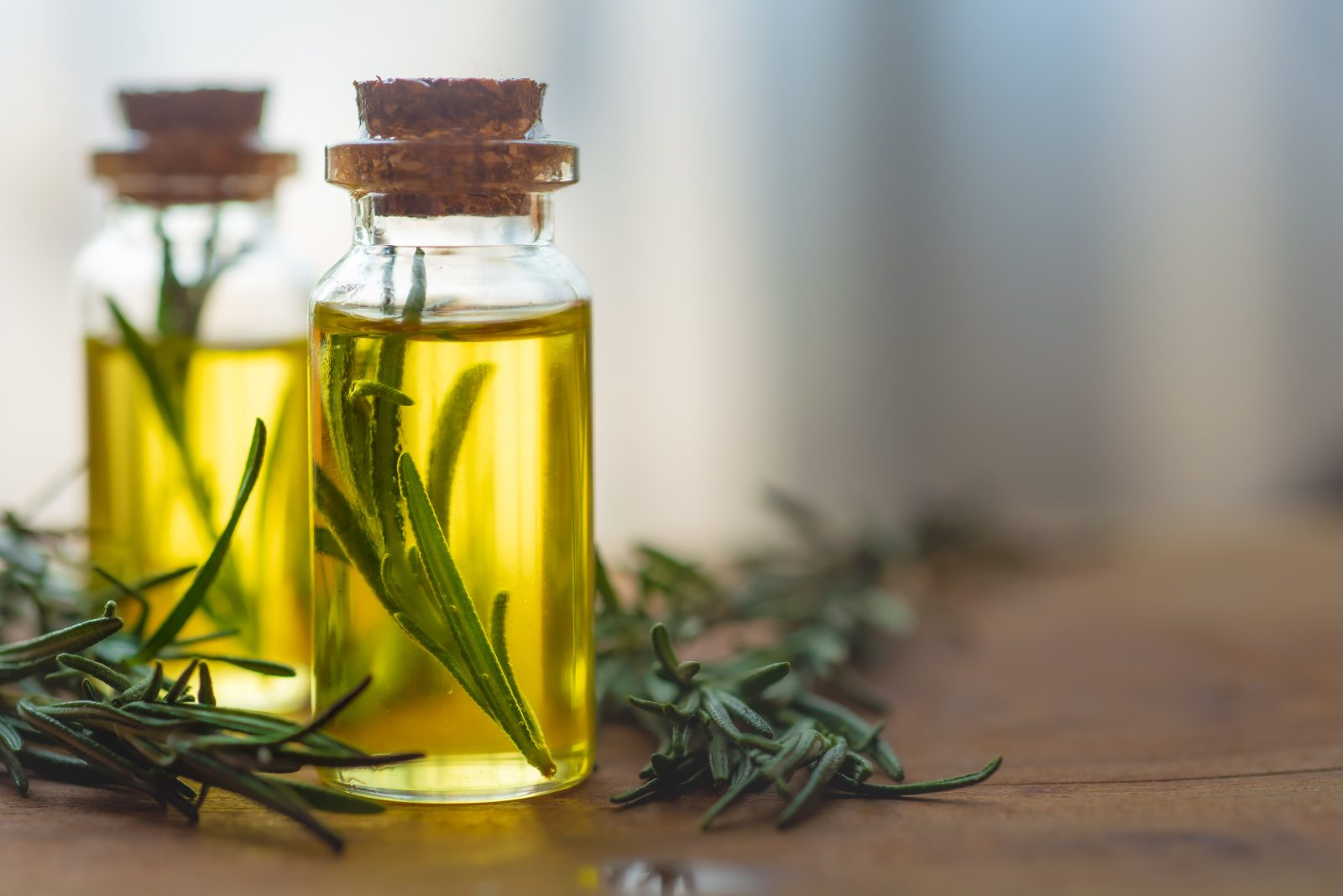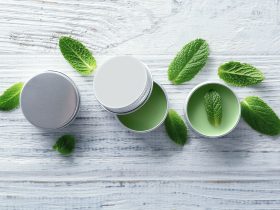In the quest for thicker, longer hair, many have turned to rosemary oil, a popular DIY solution lauded by countless TikTok users.
With over 3 billion views on videos touting its benefits, rosemary oil has gained significant attention as an affordable and seemingly side-effect-free alternative to traditional hair growth treatments like minoxidil (commonly known as Rogaine).
But does rosemary oil really work, or is it just another fleeting trend? Keep on reading to find out what the science says and what you need to know. Is rosemary oil for hair one of the best natural beauty secrets or is it a myth? Let’s find out!
What the Science Says About Rosemary Oil for Hair Growth
Rosemary oil has long been a popular home remedy for promoting hair growth and improving scalp health. Although anecdotal evidence abounds, the scientific community has started to explore its efficacy more rigorously.
Current research provides some promising, though not conclusive, support for the benefits of rosemary oil in hair growth.
Human Studies
A notable study from 2015 is often cited in discussions about rosemary oil’s potential for treating hair loss. This study involved men suffering from androgenetic alopecia, which is the most common cause of hair loss.
The participants were divided into two groups: one group massaged rosemary oil into their scalps twice daily for six months, while the other group used 2% minoxidil, a widely recognized hair growth treatment.
At the end of the study, the results showed that the hair growth in the rosemary oil group was comparable to that in the minoxidil group. This suggests that rosemary oil could be an effective alternative treatment for androgenetic alopecia.
Another small study conducted in 2015 examined the effects of a blend of essential oils, including rosemary oil, on participants with alopecia areata, an autoimmune condition that causes hair loss. Over half of the participants who used the oil blend experienced significant hair regrowth.
While these results are encouraging, the study’s small sample size and the use of multiple oils make it difficult to isolate the specific effect of rosemary oil.
Animal Studies
Research on animals has also contributed to our understanding of rosemary oil’s potential for promoting hair growth. A 2022 study on hairless rats tested the effects of an oleogel infused with rosemary essential oil. The results indicated that the rosemary-infused oleogel produced hair growth effects similar to those of 2% minoxidil.
Although these findings are promising, it is important to note that animal studies do not always translate directly to human outcomes.
Mechanisms of Action
The potential benefits of rosemary oil for hair growth may be attributed to several mechanisms. Rosemary oil contains compounds such as carnosic acid and rosmarinic acid, which have antioxidant, anti-inflammatory, and antimicrobial properties.
These compounds may improve scalp health by reducing inflammation and microbial activity, which are factors that can contribute to hair loss.
Additionally, rosemary oil may improve blood circulation to the scalp, thereby enhancing the delivery of nutrients to hair follicles.
Current Limitations and Future Directions
Despite these promising findings, the body of research on rosemary oil for hair growth is still limited. The studies conducted so far have generally been small in scale and short in duration.
Larger, more comprehensive clinical trials are needed to establish the efficacy and safety of rosemary oil as a treatment for hair loss.
Theoretical Benefits of Rosemary Oil
Rosemary oil has been celebrated for its potential to support hair growth, though the exact mechanisms remain a subject of ongoing research.
Dermatologists and researchers have proposed several theories to explain how rosemary oil might contribute to hair health and growth.
- Anti-Inflammatory and Antioxidant Properties
Rosemary oil contains carnosic acid and carnosol, both of which possess potent anti-inflammatory and antioxidant properties. Inflammation is a known factor that can negatively affect hair follicles, leading to hair thinning and loss.
By reducing inflammation, rosemary oil could potentially create a more favorable environment for hair growth. Antioxidants, on the other hand, help neutralize free radicals that can damage hair follicles. Protecting these follicles from oxidative stress, rosemary oil might help maintain healthy hair growth.
- Improved Blood Circulation
One of the more widely accepted theories is that rosemary oil can enhance blood circulation to the scalp. Good circulation ensures that hair follicles receive essential nutrients and oxygen, which are critical for healthy hair growth.
The act of massaging the scalp, whether with rosemary oil or another medium, can also stimulate blood flow. This improved circulation can invigorate hair follicles and promote growth.
- Scalp Health
The antimicrobial properties of rosemary oil are another significant factor in its potential benefits for hair growth. A healthy scalp is crucial for healthy hair, and rosemary oil’s ability to combat microbial growth can help maintain scalp health.
Conditions like dandruff, caused by yeast or bacteria, can damage hair follicles and lead to hair loss.
Rosemary oil may reduce such risks and promote a healthier environment for hair growth.
- Potential Mechanisms
Several mechanisms have been proposed to explain how rosemary oil might encourage hair growth:
- DHT Reduction: Some researchers suggest that rosemary oil may inhibit the action of dihydrotestosterone (DHT), a hormone linked to hair loss, particularly in androgenetic alopecia.
- Cellular Regeneration: Carnosic acid in rosemary oil has been shown to promote healing and tissue repair. This property might extend to the scalp, aiding in the regeneration of hair follicles and supporting new hair growth.
- Sebum Regulation: Rosemary oil may also help regulate sebum production. Excess sebum can clog hair follicles, leading to hair loss.
Practical Considerations and Risks
For those considering trying rosemary oil, it’s important to manage expectations. While there are few serious side effects, people with a history of allergic reactions or scalp sensitivity, such as those with psoriasis or eczema, should be cautious.
Rosemary oil can cause contact dermatitis, an itchy rash triggered by skin contact with certain irritants or allergens.
Additionally, rosemary oil may not be suitable for all hair types. Individuals with fine hair might find that the oil’s thick, greasy consistency weighs their hair down.
The Bottom Line
Despite the buzz around rosemary oil for hair growth, the evidence is not definitive. The studies are small, and the results modest.
Dermatologists caution that while rosemary oil is unlikely to cause harm, its benefits for hair growth are uncertain. If you choose to use rosemary oil, be prepared for a long-term commitment and manage your expectations about the results.
Hair loss can be a deeply emotional experience, leading to frustration and insecurity. For those determined to address thinning hair or significant shedding, consulting a board-certified dermatologist or primary care doctor is the best course of action.
Medical professionals can diagnose the underlying cause of hair loss and recommend scientifically backed treatments more likely to be effective than rosemary oil.
















Find Us on Socials